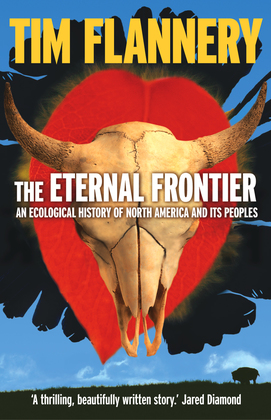

When they lose their leaves they absorb the nutrients for the dark months. Trees would have been able to survive because they would have already lost their leaves for the winter. This is because darkness engulfed the planet for many months after the asteroid struck. *The existence of trees today that were around before the Chicxulub struck means that it likely struck in the winter. By having a cone shape they are able to optimize light coming from both flat and vertical angles. *Trees that grow into the shape of a cone have evolved from polar conditions where the sunlight is flat. These are the Houn Pine, Kauri, Araucaria Pine, and Wollemia Noblis and some others listed on page 33. *Miraculously, some species of trees have survived and evolved over 65 million years when the Chicxulub struck North America to today. *The land-mass that is today North America was formed many millions of years ago when two smaller land-masses with very different environments separated by the Bearpaw Sea merged. However, it will also likely have to involve a cultural shift away from valuing more (AKA consumption) towards valuing a simpler existence. First, it will involve developing technologies that will allow our society to “do more with less” (AKA efficiency).

I was left thinking that “ The Eternal Frontier” will be twofold. As Flannery suggests, the environment is beginning to place natural limits on our ability to live and exist as we have in the past. But the environment is beginning to show signs of our “frontier” existence. The cornucopia of natural resources has allowed our “frontier society” to consume almost without end all the while becoming the wealthiest country on earth.
ETERNAL FRONTIER ECOLOGICAL FREE
When viewed in this context it is not entirely surprising that the US has developed into the world super-power given that human immigrants acting within a free market economy have benefitted from a very rich ecological base over the past few hundred years. BUT, he also ends on a hopeful note which leaves the reader with a positive feeling about the future.Įspecially interesting was the sociological insight he borrowed from the turn of the 18th-century lecturer Frederick Jackson Turner who characterized US society as a “Frontier” society in which pioneers continually push the edge of the frontier, exploiting natural resources (which are plentiful on a frontier), all the while furthering economic development (see page 292). Much like Friedman’s, “ Hot, Flat, and Crowded“ the story he writes is not pretty. In the last 500 years of the book Flannery focuses on the impact that humans have had on the North American environment. 00015% of North America’s modern ecological history. Even if you live long enough to call yourself a centurion you will only witness. Second, it is humbling to compare our concept of time, which is heavily influenced by the length of a human life, in the perspective of “modern” ecological history which spans 65 million years. First, it is remarkable how detailed of a history modern day scientists are able to create based on the limited remnants of ancient history they are given to work with. However, there were two themes that struck a chord with me. Perfect.įlannery’s book takes the reader back 65 million years when an asteroid, now known as ‘Chicxulub’, struck North America thus brining “modern” ecological history into being up to the present day where he focuses on the human impact on the environment.įor me, the first 64,999,500 years of the book were a little slow. It just so happened that while I was exploring another one of my favorite environments, a used book store, I came across a book by Tim Flannery entitled, “ The Eternal Frontier: An ecological history of North America and its Peoples“. Furthermore, I’ve come to realize that I am ignorant about the natural forces that have shaped the very environment in which we live. As it does with traveling to foreign places it got me thinking about the natural treasures which are close to home that I have yet to explore. Over the past 4 months in NZ Tina and I have spent much of our waking moments immersed in the natural beauty which makes this country such a special place to visit.


 0 kommentar(er)
0 kommentar(er)
